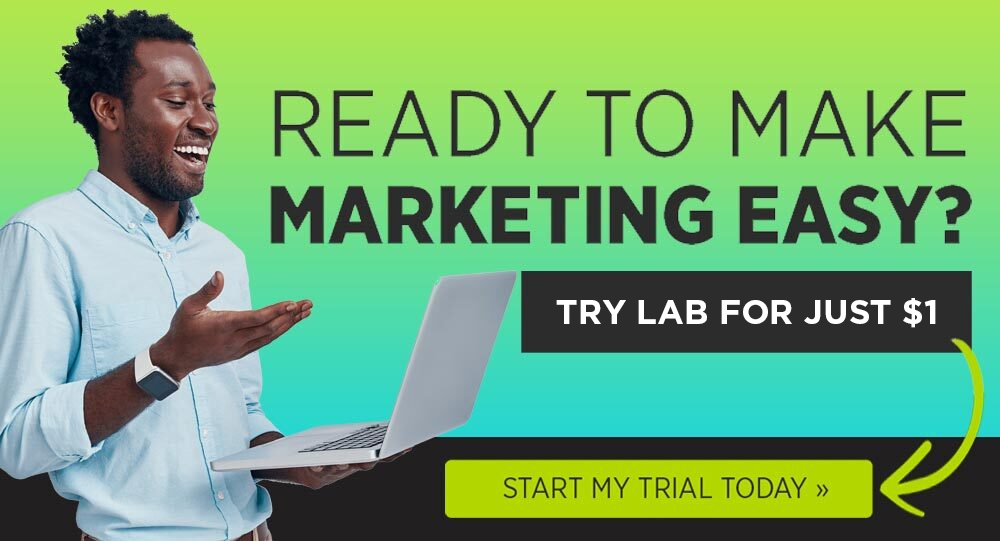Unlocking Hidden Revenue: The Inbox Retargeting Methodology
Discover the game-changing strategy of Inbox Retargeting and how it propelled one agency to an extra $109k in revenue. Unveil the secrets to maximizing conversion rates and unlocking hidden leads. The post Unlocking Hidden Revenue: The Inbox Retargeting Methodology...


Page conversion rates have ALWAYS been a problem. The simple fact is most people don’t convert even on the most optimized pages.
What’s why traditional retargeting on ad networks has been so dang powerful. While retargeted leads come cheap, they still aren’t free. Worse, you’re back competing against your competition in the ol’ ad auction system.
For the last 6 years, I’ve been using a tactic called Inbox Retargeting to identify who lands on my key pages and directly reach out to them in their inbox.
No more ads. No more auctions. Just a targeted contact that showed they were interested, but didn’t quite take the leap yet.
Before I dive into the “What’s” and “How’s”, this tactic can only be used in the good ol’ US of A. If you aren’t in the states or don’t have clients in the states, you’re out of luck. Sorry!
How It Works
Inbox retargeting doesn’t take a lot of heavy lifting. I’ll share the strategy next but I wanted to start with some of the logistics.
DISCLAIMER: I am not a lawyer or coder, so keep that in mind if technical or legal questions pop up.
If you have a website, you have tracking scripts, e.g., GA4, the Facebook Pixel, Heatmap software, etc…
To get started with Inbox retargeting, you just need to be able to copy and paste two scripts on your site:
A collection script: This fires and tries to identify the visitorA suppression script: You’d fire this on your conversion confirmation pages, you don’t want people who converted to land in your Inbox Retargeting campaigns.

The tech works off of a database of contacts in the United States that are eligible for emails, so it’s completely above board with your ESP. However, you’ll want to do a few things before you start treating them like a regular member of your email list.
We initially tested this on one of our paid media campaigns. We already had a really strong campaign that we wanted to squeeze more leads out of…and boy did we.
We were driving traffic from Meta (Facebook for the OGs) to this landing page:

This page converts at 58%. Yeah, that’s a humble brag…deal with it.
Even with a 58% conversion rate, we’re still missing out on 42% of the traffic we’ve already paid for. That’s kind of a bummer.
After we added the collection script to the page, they were able to capture a lot more leads. The conversion rate jumped from 58% to a very sweet 87% – that’s a 50% increase!
That was the impact on a single page, that’s when we knew it was time to go bigger.
The Strategy
Most of the tools out there, whether it’s Retention.com or Customers.ai, are going to charge based on the number of contacts. So it can get pretty easy to burn through contact credits if you run the script on every page you manage, your site and your clients’ sites included.
That’s why you’ll want to make sure to select pages that capture intent versus targeting all of your traffic.
ID Key Pages
Here are some of the pages you should consider adding the collection script:
Campaign Landing Pages – If you’re paying to send someone to a page, the referring source piqued their interest. If they didn’t convert, you’d definitely want to follow up. Product Pages – If someone is viewing this page they’re evaluating a particular product they were interested in. High Intent/Value Content Pages – This could be your pillar content on your blog pages, podcast pages, or your top level service pages. Registration Pages – This is a subset of a landing page, but if someone got all the way to a registration or sigh up page, they’re a prime candidate for outreach. Cart Pages – People abandon carts all the time. If you weren’t able to catch their details during checkout, this is an ideal opportunity.Effectively it’s any page where you’re pushing a specific action. While the above pages are the pages to choose from, a homepage is acceptable but will require a little more finesse when you follow up.
Map to Email Campaigns
Now that you’ve identified where you’re going to identify leads, you’ll need to map it to your automation tool.

GET CERTIFIED. Discover the proven plan for effortless, automated email marketing. Click Here
Most tools have a direct integration with your email service provider, but worst case scenario you may have to pass the data through a no code integration tool like Zapier.
Once you’ve worked out the digital plumbing, you’ll want to follow up based on the page the contact was collected on. Here’s how you should approach follow up:
For Campaign Landing Pages – Give them the specific asset. They were interested in it, you’ve got their contact information, just hand over the goods. This builds good will at the start of the relationship. Product Pages – Send over the details of the product or product category they were viewing. This could be as simple as a reminder or you could build goodwill with a special offer or coupon. High Intent/Value Content Pages – Send over some of your best content or freebies that move people to the next phase of the Customer Value Journey. Registration Pages – Treat these like an “abandoned cart” type of email and get them to take that next step. Cart Pages – Same as “Registration Pages” but it’s, you know, an actual abandoned cart reminder. Similar to the product pages you could entice them to come back with a deal or coupon. Homepages – If you do run these on the homepage, you’ll need to do more of a reintroduction then transition to showcasing your best stuff.Email Structure
The initial message you send needs to have a very specific flow. There are four critical things that need to happen when they open up your Inbox Retargeting message.
First, remind them about who you are and how they know you. This can be as simple as a, “Hey, thanks for stopping by…” message. Have some fun with it.
Next, you need to provide highly specific value based on their browsing intent. If you get this wrong, they’re just going to file your message under SPAM.
After that, you’ve got to set expectations with what they’re getting and now you’ll be communicating with them moving forward.
And Finally, you need to give them an EASY OUT. These campaigns have our highest unsubscribe rate, but that’s because we outright ask people to unsubscribe if they don’t want any additional contact.
Once you’e gone through this, you treat them like one of your regular subscribers with all your fancy ascension automations, content emails, and promotional emails.
Here are the email stats from one of our PPC Campaigns:

With an average open rate of 53.87%, we know there’s a base line interest in the deliverable. The click rate is DANG good for messaging visitors who didn’t convert.
Sure the unsubscribe rate is a little high for this campaign, but that is intentional. We push them to opt-out in the first email so we don’t get dinged later with complaints.
The Payoff: An Additional 109k Last Year
I mean, who doesn’t want another cool 100 grand for adding a script to your website and writing a couple of emails? Here’s how the numbers work out:
Last year, we identified 3,714 leads using this method. IMPORTANT: When I was pulling these numbers, I realized we installed the code wrong on some pages and missed out on about another 2k leads…oops!
Our average lead cost was ~$7, so the leads themself were a $26,000 additional value. This alone would be a reason to use the tech.
BUT JUSTIN, did they convert?!
Yes!
We closed $36,000 in IPPC business from this lead source. For what we spent on those leads we’re looking at a 750% ROAS. Not too shabby.
The rest of the money we made was by selling this service to our clients. Since we run paid ads for clients, this method is a complete no brainer. We ran a pilot program and only offered this to a handful of clients last year, we averaged about 4k/month in sales.
We sold clients the leads at ~$2/lead for some of the niches we work in, that’s a steal.
If you decide to sell this you need to make sure the client knows these are lower intent leads and will require longer term nurtures. If you follow the email strategy I shared above, you’ll be good to go!
Protip: Charge for building the follow up sequence!
So that’s it! If you’re running your own business or are an agency owner, you’ve got to consider Inbox Retargeting. Though, I do have some bad news…
Not to be “Chicken Little” but this is starting to get way more attention, there are services popping out of the woodwork so this will become a table stakes method. So get ahead of this today.

 JaneWalter
JaneWalter 










_1.jpg)





















